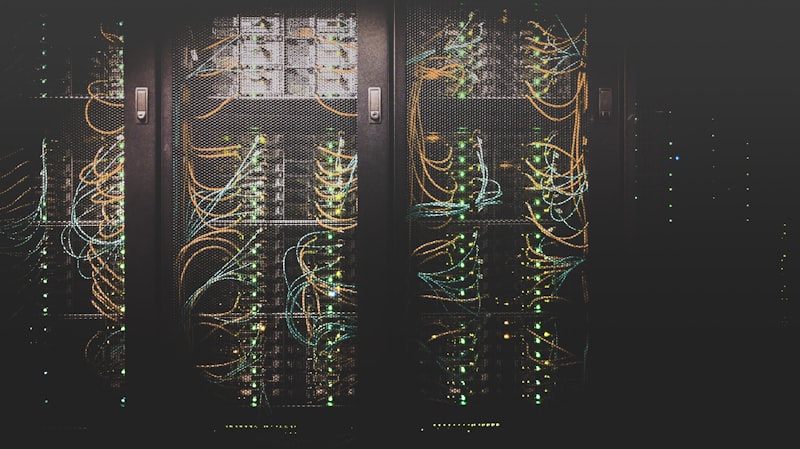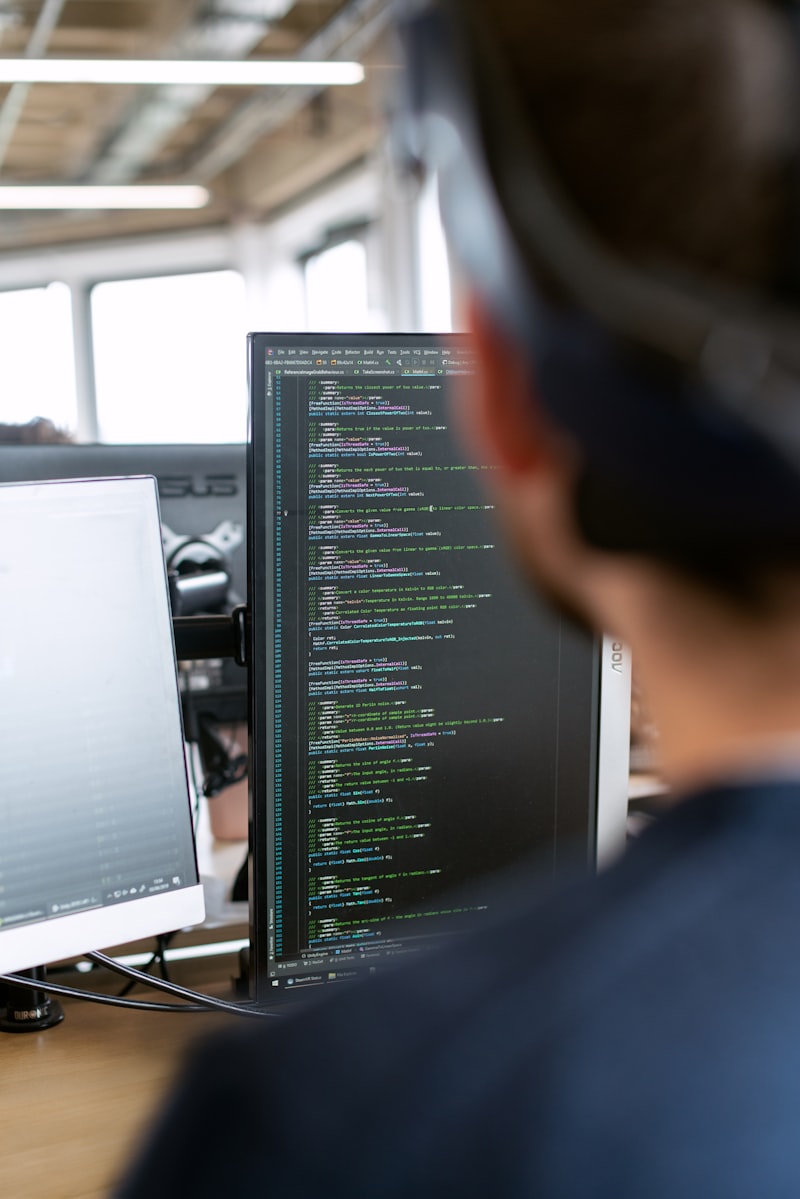Introduction
When discussing global hubs for artificial intelligence research and innovation, cities like San Francisco, Boston, and London often dominate the conversation. However, over the past decade, Montreal has emerged as a formidable player in the AI landscape, establishing itself as one of the world's leading centers for artificial intelligence research, development, and commercialization.
As a Montreal-based AI consulting firm, we at BoDuo have witnessed firsthand the remarkable growth of the city's AI ecosystem. In this article, we explore the unique combination of factors that have contributed to Montreal's rise as an AI powerhouse and why this creates a significant advantage for companies based in the region.
A Rich Academic Foundation
Montreal's strength in AI didn't emerge overnight. The city's journey to becoming an AI hub began decades ago with pioneering academic research that laid the groundwork for today's innovations.
The Birthplace of Deep Learning
Montreal is often referred to as the "cradle of deep learning," largely due to the groundbreaking work of Yoshua Bengio and his team at the Université de Montréal. Bengio, along with Geoffrey Hinton and Yann LeCun, is considered one of the "godfathers of AI" for his fundamental contributions to deep learning research. His work in the 1990s and 2000s, when deep learning was not yet mainstream, helped establish Montreal as a center for neural network research long before the current AI boom.
World-Class Research Institutions
The city boasts an impressive concentration of academic institutions with strong AI programs:
- Mila (Quebec AI Institute): Founded by Yoshua Bengio, Mila has grown to become the world's largest academic research center in deep learning, with over 500 researchers.
- McGill University: Home to the Centre for Intelligent Machines and the Reasoning and Learning Lab, McGill has a long history of excellence in AI research.
- Université de Montréal: The Department of Computer Science and Operations Research (DIRO) is renowned for its contributions to machine learning.
- École Polytechnique: Offers specialized programs in AI and contributes to applied research in the field.
- Concordia University: Has developed strong programs in AI and data science, particularly focused on practical applications.
This concentration of academic excellence creates a fertile environment for innovation and ensures a steady pipeline of highly skilled AI talent.
Government Support and Investment
Montreal's rise as an AI hub has been significantly accelerated by strategic government support at both the provincial and federal levels.
Strategic Funding Initiatives
The Canadian and Quebec governments have made substantial investments in AI research and commercialization:
- Pan-Canadian AI Strategy: A $125 million federal investment to establish Canada as a world leader in AI, with significant funding directed to Montreal's Mila.
- Quebec AI Strategy: A provincial commitment of over $100 million to support AI research, talent development, and technology transfer.
- Scale AI: A Montreal-based supercluster focused on AI-powered supply chains, backed by $230 million in federal funding.
- IVADO (Institute for Data Valorization): Received $93.5 million from the Canada First Research Excellence Fund to accelerate the adoption of data science across industries.
Favorable Immigration Policies
Canada's immigration policies have played a crucial role in attracting international AI talent to Montreal:
- Global Skills Strategy: Expedited work permits for highly skilled professionals, with processing times as short as two weeks.
- Start-up Visa Program: Facilitates immigration for entrepreneurs launching innovative businesses in Canada.
- Post-Graduation Work Permits: Allow international students to gain valuable work experience in Canada after completing their studies.
These policies have been particularly advantageous in recent years, as other countries have implemented more restrictive immigration measures.
A Thriving Corporate Ecosystem
Montreal's academic excellence and government support have attracted significant corporate investment, creating a dynamic ecosystem where research breakthroughs can be quickly commercialized.
Major Tech Companies Establishing AI Labs
Several global technology giants have established significant AI research facilities in Montreal:
- Google: Established Google Brain Montreal, led by Hugo Larochelle.
- Microsoft: Acquired Montreal-based Maluuba and expanded its AI research presence in the city.
- Facebook (Meta): Opened FAIR Montreal, led by Joelle Pineau from McGill University.
- Samsung: Established the Samsung Advanced Institute of Technology AI Center in Montreal.
- IBM: Expanded its AI activities in Montreal through partnerships with local universities.
These corporate labs not only create high-quality jobs but also foster collaboration between industry and academia, accelerating the pace of innovation.
A Vibrant Startup Ecosystem
Montreal has seen an explosion of AI startups across various sectors:
- Element AI: Co-founded by Yoshua Bengio, it was acquired by ServiceNow for $500 million.
- Imagia: Developing AI solutions for healthcare diagnostics.
- Algolux: Creating computer vision systems for autonomous vehicles.
- Stradigi AI: Building enterprise AI solutions.
- Automat: Developing conversational AI for customer engagement.
These startups benefit from a supportive ecosystem that includes incubators, accelerators, and venture capital firms focused on AI:
- Real Ventures: An early-stage venture capital firm with a strong focus on AI startups.
- Techstars Montreal AI: An accelerator program specifically for AI startups.
- Creative Destruction Lab (CDL): A seed-stage program with an AI stream at HEC Montréal.
- NextAI: A founder development program for AI-enabled companies.
Collaborative Culture and Knowledge Sharing
One of Montreal's most distinctive advantages is its collaborative culture, which stands in contrast to the more competitive environments found in some other tech hubs.
Cross-Institutional Collaboration
Montreal's AI community is characterized by extensive collaboration across institutions:
- Researchers frequently co-author papers across university boundaries.
- Joint research projects between academic institutions and corporate labs are common.
- Faculty members often hold dual appointments or advisory roles with multiple organizations.
Knowledge Sharing Events and Communities
The city hosts numerous events that facilitate knowledge sharing and networking:
- Montreal AI Symposium: An annual event bringing together researchers from across the city.
- AI4Good: Focused on applying AI to social and environmental challenges.
- MAIS Hacks: McGill Artificial Intelligence Society's hackathon.
- Montreal.AI: A community organization hosting regular meetups and discussions.
- Women in Machine Learning & Data Science (WiMLDS): Supporting diversity in the field.
This collaborative culture accelerates innovation by facilitating the rapid exchange of ideas and reducing duplication of effort.
Cost Advantages and Quality of Life
Beyond its technical and academic strengths, Montreal offers practical advantages that make it an attractive location for AI companies and professionals.
Lower Operating Costs
Compared to other major AI hubs, Montreal offers significant cost advantages:
- Office space costs approximately 50% less than in San Francisco or New York.
- Average salaries for AI professionals, while competitive, are 20-30% lower than in Silicon Valley.
- Tax credits and incentives for R&D activities can reduce costs by up to 30%.
These cost advantages allow companies to allocate more resources to research and development rather than overhead expenses.
Exceptional Quality of Life
Montreal consistently ranks among the world's most livable cities, offering:
- Affordable housing compared to other major tech hubs.
- Excellent public transportation and bike-friendly infrastructure.
- Universal healthcare and high-quality education.
- Rich cultural scene, including festivals, arts, and cuisine.
- Bilingual environment that welcomes international talent.
These quality-of-life factors help companies attract and retain top talent, particularly as remote work options have made location decisions more lifestyle-oriented.
Challenges and Future Outlook
While Montreal's position as an AI hub is strong, the city faces several challenges that will need to be addressed to maintain its competitive edge.
Current Challenges
- Talent Retention: Despite producing excellent AI talent, Montreal sometimes struggles to retain top researchers and engineers who are attracted to higher salaries in the United States.
- Scaling Challenges: While the startup ecosystem is vibrant, some companies face challenges scaling beyond the initial stages.
- Commercialization Gap: Bridging the gap between academic research and commercial applications remains an ongoing challenge.
- International Competition: Other cities and countries are making significant investments in AI, intensifying global competition.
Future Outlook
Despite these challenges, Montreal's future in AI looks promising:
- Continued Investment: Both government and private sector investment in Montreal's AI ecosystem continues to grow.
- Emerging Focus Areas: Montreal is developing particular strengths in AI ethics, responsible AI, and AI for social good.
- Industry Applications: Increasing focus on applying AI to key industries including healthcare, manufacturing, and creative industries.
- International Partnerships: Growing collaboration with other global AI hubs is strengthening Montreal's position in the international AI landscape.
The BoDuo Perspective
As a Montreal-based AI consulting firm, BoDuo is uniquely positioned to leverage the city's AI ecosystem for the benefit of our clients. Our location gives us several distinct advantages:
- Access to Top Talent: We recruit from Montreal's exceptional pool of AI professionals and maintain close relationships with local universities.
- Research Connections: Our team collaborates with academic researchers to stay at the forefront of AI advancements.
- Cost-Effective Solutions: Montreal's cost advantages allow us to deliver high-quality AI solutions at competitive prices.
- Collaborative Approach: We embody the collaborative culture of Montreal's AI community in our work with clients.
Conclusion
Montreal's emergence as a global AI hub is the result of a unique combination of factors: world-class academic research, strategic government support, corporate investment, a collaborative culture, and practical advantages in cost and quality of life. This ecosystem creates a powerful environment for AI innovation that benefits companies and organizations working with Montreal-based partners.
As AI continues to transform industries and create new opportunities, Montreal is well-positioned to remain at the forefront of this technological revolution. For businesses looking to leverage artificial intelligence, partnering with Montreal-based firms like BoDuo offers access to this dynamic ecosystem and its many advantages.
Experience the Montreal Advantage with BoDuo
Contact our team to discuss how our Montreal-based AI expertise can help your organization innovate and grow.
Contact Us Learn More About BoDuo





Comments
Sophie Williams
May 21, 2023
As someone who recently relocated to Montreal to work in the AI sector, I can confirm that the collaborative culture here is unlike anything I've experienced elsewhere. The openness and willingness to share knowledge has been incredibly refreshing!
Jean Dupont
May 22, 2023
Great article! I'd add that Montreal's bilingual nature also creates a unique advantage - it serves as a bridge between North American and European markets and research communities. This cultural duality brings diverse perspectives to AI development that you don't find in many other tech hubs.